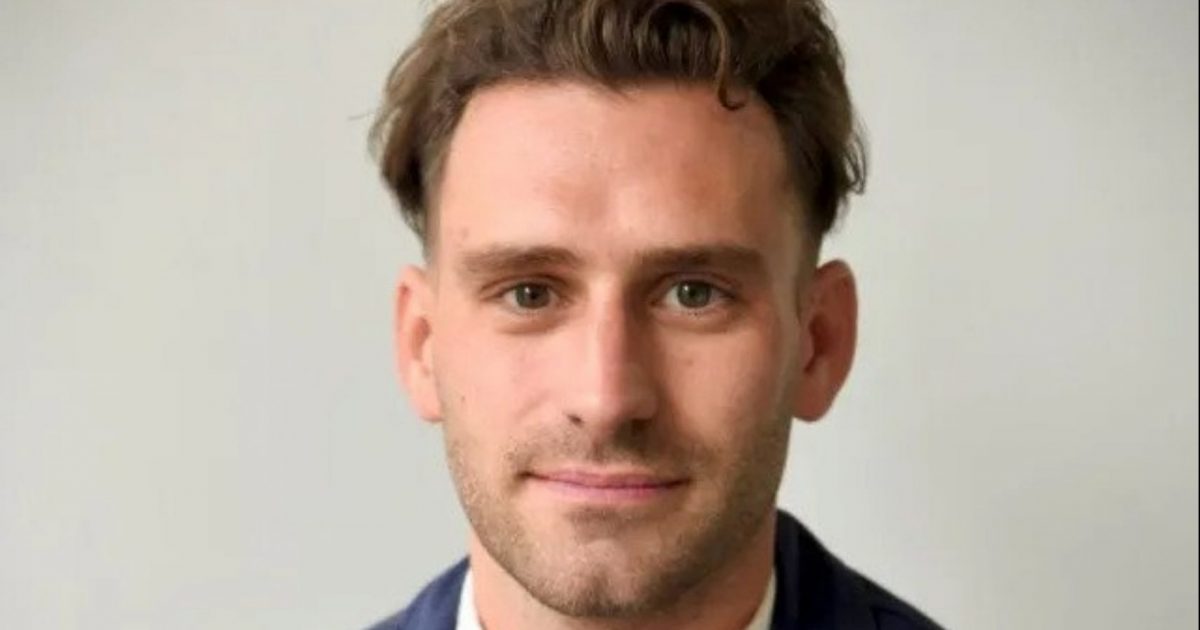Young Man Battles Through Tragic Diagnosis
- When Alex Savage woke up from a nap smelling burned rubber, he couldn’t begin to suspect the cause: an aggressive form of brain cancer called glioblastoma.
- Glioblastoma is an aggressive form of brain cancer for which there is currently no cure. It's the most aggressive primary brain tumor. It's perhaps best known as the form of brain cancer that claimed the lives of both Senator John McCain and President Joe Biden's son, Beau.
- Despite his prognosis, Savage said he feels “lucky” to be receiving fantastic medical care and that his treatment of chemotherapy and surgery appears to be working so far.
The 34-year-old was living in Australia, volunteering as a lifeguard at the legendary Bondi Beach and working as a communications consultant, when he found out about his illness.
Read MoreWhat Is Glioblastoma?
Glioblastoma is an aggressive form of brain cancer for which there is currently no cure. It's the most aggressive primary brain tumor. It's perhaps best known as the form of brain cancer that claimed the lives of both Senator John McCain and President Joe Biden's son, Beau.
Brain cancer treatment options are broadening, thanks to newer cancer research. Duke University Medical Center neuro-oncologist Dr. Henry Friedman told SurvivorNet in an earlier interview there is progress being made in treatment of the disease.
Dr. Friedman his Duke colleagues are investigating a new therapy that combines the modified poliovirus and immunotherapy. "The modified poliovirus is used to treat this tumor, by injecting it directly into the tumor, through a catheter. It is designed to lyse the tumor and cause the tumor cells to basically break up" he says.
"I think that the modified poliovirus is going to be a game-changer in glioblastoma," explains Dr. Friedman, "but I should also say that its reach is now extending into melanoma soon to bladder cancer."
There Is New Hope for Those Fighting the Same Cancer That Took John McCain & Ted Kennedy; Using Polio & Immunotherapy to Fight Brain Tumors
Feeling Lucky, Despite No Guarantees
Savage went through eight rounds of chemotherapy and said he feels "lucky" that it appears to be working. However, he acknowledged there is "no guarantee" of his continued recovery.
"The horrible thing about glioblastoma is that it grows with microscopic tendrils, so while my surgeon was able to get what he could see and an eighth of my entire brain too there's no guarantee it won't come back," he said. "I wanted to settle down, marry, have kids but the average life expectancy is 14 months. I know some live longer, some survive and I'm responding well to treatment at the moment, but despite everything, I feel lucky. The treatment I'm being given is working, but doesn't for everyone."
Savage has since returned to his home in the United Kingdom to be close to family. He said he has been receiving excellent care, calling it "gold-star standards."
"When you're diagnosed, you don't want to have to research a hospital that's good, you want the same level of care everywhere," he said.
The Importance Of Hope
Focusing on hope, and maintaining a positive attitude through a cancer battle can help. Anecdotal evidence from SurvivorNet experts points to how a positive mindset can impact a cancer prognosis. Dr. Zuri Murrell, an oncologist at Cedars-Sinai tells SurvivorNet in an earlier interview, "My patients who thrive, even with stage 4 cancer, from the time that they, about a month after they're diagnosed, I kind of am pretty good at seeing who is going to be OK. Now doesn't that mean I'm good at saying that the cancer won't grow," he says.
"But I'm pretty good at telling what kind of patient are going to still have this attitude and probably going to live the longest, even with bad, bad disease. And those are patients who, they have gratitude in life."
Stay Positive, It Matters
Learn more about SurvivorNet's rigorous medical review process.


